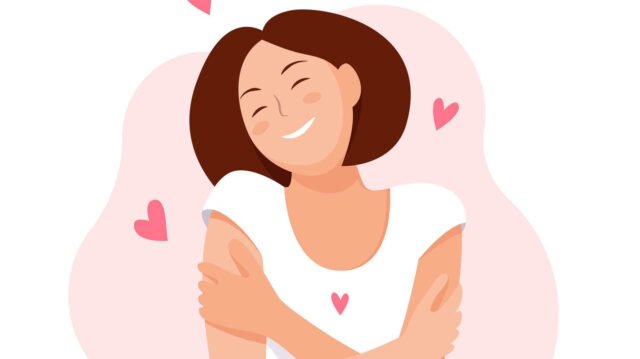Mantras claiming that “you can’t love other people until you love yourself” or “you need to love yourself before you can be loved by someone else” or “only when you can fully accept yourself will another person be able to” are popularised by self-help books and Tumblr posts.
But are they helpful?
These quotes do nothing more than pass a futile statement with little-to-no thought about the reality of being a person with substance, and that includes the flaws and struggles, which all of us have.
Do Not Subscribe To Them Mindlessly
First of all, these quotes think of self-love as a pre-requisite to loving others. Like self-love is an ingredient that you can casually buy from any general store.
They undermine the process of self-love and treat relationships with others as the end goal.
The journey of self-love isn’t about the destination, it’s about what you learn along the way. It doesn’t come easy and there is no definite result.
Another counter effect is that it misleads people to pursue self-love only to feel worthy of being loved someday.
A friend of mine recollects:
“In my own experience, there was a time when I had conditioned myself to live up to the perfect image that I had created for myself – one that I had painted taking examples from those around me. I always thought that if I can stand up to that and be the perfect version of myself, no matter how deviated it is from my real self, I would definitely be loved. However, soon that entire image shattered as nothing is ever enough to meet that perfect image that we create for ourselves.”
-Madhur
Secondly, loving yourself doesn’t only mean that you overlook or accept your flaws, it can also mean that you work on yourself to change what you can for better mental well-being.
People who don’t love themselves might just be constantly working to get better. It doesn’t always mean that they are in a pit hole of self-destruction and they don’t deserve to be in a relationship.
Self-love and relationships aren’t unidirectional. Even the quality of relationships affects our self-esteem. I asked another one of my friends to share her struggles during her relationship, which explains my point.
“My self-esteem started hitting rock bottom after I came into a relationship, it was fine earlier but when my s/o started commenting and joking on my appearance I started doubting myself, the way I looked thinking he might leave me for someone better looking”
-Priya
When you tell somebody that you can only be loved or truly love others, when you love yourself first- you are being ignorant and insensitive to people and their feelings.
“Struggling with anorexia and body dysmorphia, it feels so impossible for me to experience the level of self-love and advocacy the Internet so often preaches. But does that then make it impossible for me to love and be a compassionate and reliable partner in a relationship? I don’t think so. If we continue to put worth in this saying, what we are essentially saying is that every single person suffering from anxiety, or depression or personality disorders, or addictions isn’t ready to love or be loved. We’re basically shaming someone into believing they don’t deserve to love or be loved, when in fact they’re probably the ones who need it the most.”
–Charlotte Rollin, for ‘The insecure girl’s club’
Also Read: Handling Anxiety By A Simple Self-Help Technique: What Is Grounding And How It Works
The Two Takes
Though studies do suggest that generally higher self-esteem leads to happier relationships, self-love isn’t a guarantee that you’ll have a prosperous relationship or have it at all.
“Relationships do fail even with self-love. Sometimes we have different timelines and everything but I also believe it is important to fuel a relationship. It sets a basic foundation for a person to not let personal issues like insecurities, stress, etc creep into a relationship with another being.
In most cases, relationships do fail because of a lack of self-love if you let it control your relationship. In my case, I loved myself but i think it overwhelmed my partner, maybe he couldn’t match my self esteem, after a point he refused to even try and the relationship failed even though I did everything I could…” adds Minakshi, a close friend of mine, when I asked her about her experience.
Does loving ourselves lead us to love others? Contrary to the belief in popular discourse, that isn’t always the case. In fact, it can take a complete u-turn.
Research suggests that “In contrast, the implications of self-esteem for loving others are generally positive but are still mixed. High self-esteem individuals may be resistant to negative experiences of lovesickness. However, they may also miss the highs associated with manic love. These individuals also report greater passionate love. In sum, the ego can be as much of a hindrance to romantic relationships as it can be a help. Individuals looking to experience love may be best served by turning out toward the other rather than turning in toward the self.”
Relationships don’t work in a textbook method, life is complicated and no matter how much we are comfortable in our own skin, it’s no guarantee that we’ll be blessed with amazing relationships.
And vice-versa, just because you think you are not perfect, doesn’t mean that you will never find a loving relationship.
The connection between self-love and love for others exists for sure but it isn’t necessarily reciprocal, it is dynamic and depends on multiple factors.
“I wasn’t exactly the best version of myself when I got into a relationship. Even though my s/o didn’t directly influence a change, it was during the course of my relationship that I started working on myself, for myself and people around me, who loved me” says Bhumi, my neighbour.
Whereas the experience for Siyali, a friend of mine, was different.
“Self-love has done more harm than good because it leads you to believe that you have to become the “perfect” person just to get shitty love from a shitty person and at the end of the relationship all you do is doubt yourself that it happened to you because you didn’t love yourself enough”
End Note
What you need to take away is this — to fully love yourself and be completely at peace is great but the lack of it doesn’t mean you don’t deserve to love or be loved. That also doesn’t mean that you should treat a relationship as the replacement of self-improvement.
You cannot completely depend on others for your well being, and you cannot give up on yourself. You just need to find a balance, you need to know what you want and what you can take.
Loving yourself, maintaining relationships, setting boundaries, determining your needs and communicating wants takes effort and clarity. You just need to be willing to work for it, simultaneously or step-by-step – with or without a partner.
Image Credits: Google Images
Sources: Psychology Today, Research Gate, She Said
Find The Blogger: @MNtweeting
This post is tagged under: self-love, self-esteem, relationships, self-help books, famous quotes, misconceptions, problematic, psychology, psychologists, research, society, pressure, connection, love yourself
Other Recommendations:
FlippED: Self Help Vs Fictional Books, Our Bloggers Fight It Out





































Nicely explained, self-love is not a thing that can be achieved just by following quotes or for loving someone else.
Why do people always act filmy?? Where does such sentences come from “We should ourself first” as if its a set benchmark!! When you start a new relationship everything is gold to you, you give atmost time respect care affection everything to the other, then the relationship gets older all other things depreciates. Until there are some misunderstanding ppl will you more than anyone else and MORE THAN SELF. Once misunderstanding starts self love comes into the picture. So there is no fucking self love, its the way to bring the relationship to a conclusion.
Where did this phrase love yourself first come from?